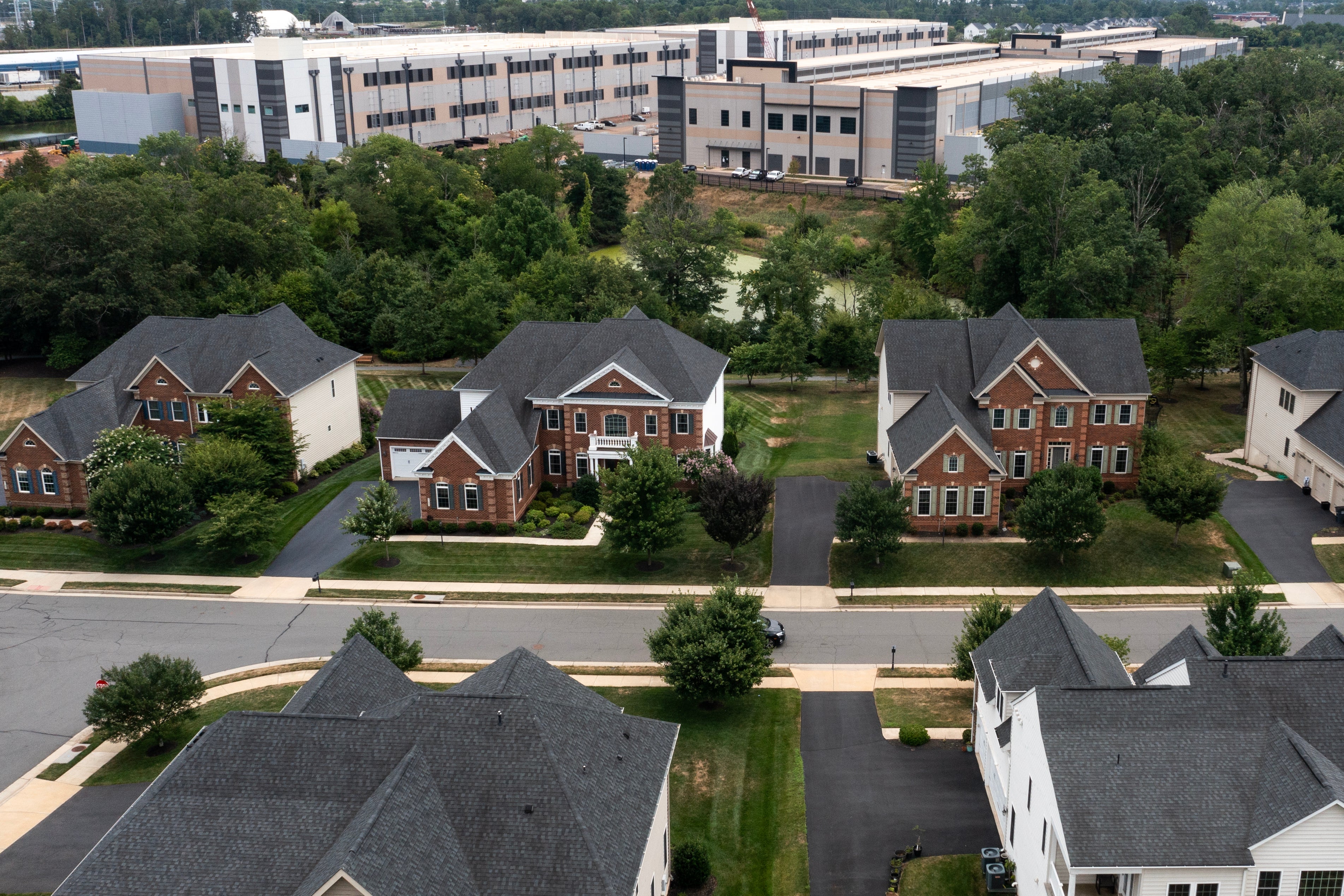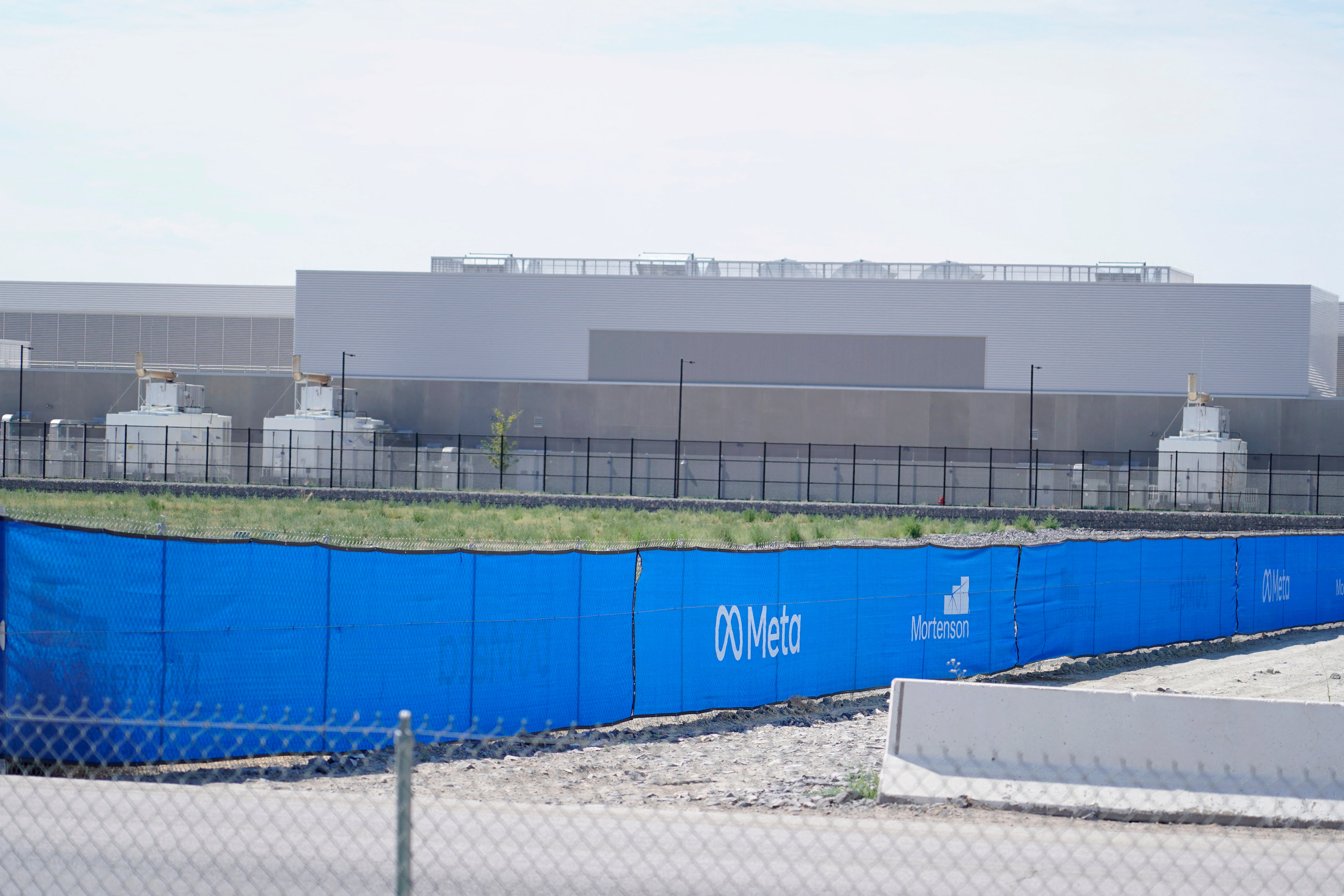Air pollution caused by AI tech could lead to 1,300 U.S. deaths annually by 2030, researchers say
Air pollution already kills millions of people and more data centers could add to the burden, scientists warn
Your support helps us to tell the story
From reproductive rights to climate change to Big Tech, The Independent is on the ground when the story is developing. Whether it's investigating the financials of Elon Musk's pro-Trump PAC or producing our latest documentary, 'The A Word', which shines a light on the American women fighting for reproductive rights, we know how important it is to parse out the facts from the messaging.
At such a critical moment in US history, we need reporters on the ground. Your donation allows us to keep sending journalists to speak to both sides of the story.
The Independent is trusted by Americans across the entire political spectrum. And unlike many other quality news outlets, we choose not to lock Americans out of our reporting and analysis with paywalls. We believe quality journalism should be available to everyone, paid for by those who can afford it.
Your support makes all the difference.Data centers needed to support the artificial intelligence industry may come with a costly environmental toll — and the loss of human life, researchers say.
Air pollution that is emitted from centers that are being opened all over the U.S. could result in as many as 1,300 early deaths each year by 2030.
“When we talk about the costs of AI, there has been a lot of focus on measurements of things like carbon and water usage. And while those costs are really important, they are not what’s going to impact the local communities where data centers are being built,” Adam Wierman, director of Information Science and Technology at Caltech, said in a statement.
The findings were included in a recent report co-authored by Wierman along with scientists at Caltech and UC Riverside that has yet to be peer-reviewed.
To produce the energy necessary to power computing systems and AI servers requires a massive amount of electricity. The computer power dedicated to AI is doubling every 100 days, according to an April estimate from the World Economic Forum. Much of the electricity production uses greenhouse gas-emitting fossil fuels.

Fossil fuels contribute to climate change and can cause respiratory illness, produce cancer-causing particulate matter, contribute to smog and acid rain, and pollute waterways. Air pollution from fossil fuels has been found to kill millions: one in five people around the world, according to a 2021 study from scientists at Harvard University and U.K. institutions.
While the future of AI-based centers is still relatively murky and more companies are turning to nuclear and cleaner energy sources to mitigate their impacts, the effects are expected to escalate. Recent Department of Energy estimates found that data center energy use is expected to either double or triple by 2028. Last year alone, data centers produced at least 106 million metric tons of emissions — rivaling those of the domestic commercial airline industry, according to researchers at Harvard and UCLA.
Generating the electricity needed to train a large language model at the scale of Meta’s Llama-3.1 produced air pollution that was equivalent to more than 10,000 round trips by car between Los Angeles and New York City, the report said. Meta, which is looking to build a new center in Louisiana, did not immediately respond to The Independent’s request for comment.
While AI offers significant benefits, Wierman stressed that “we need to make sure that we have our house in order, and that the negative impacts that come from it are recognized, quantified, minimized, and shared equitably.”
The authors recommend that tech companies should be required to report the air pollution caused by their power generation and usage, in addition to compensating communities that could be hit the hardest by air pollution from the data centers. Air pollution from AI would disproportionately affect certain low-income communities, although the pollution drifts across county and state lines, they noted.
In some areas, the public health costs of these centers may exceed what the tech companies pay for electricity, the researchers found. Those costs are approaching an estimated $20 billion a year, the report said.

Those health costs were estimated using statistical methods developed by the Environmental Protection Agency, and account for known epidemiological risks associated with air pollution from power plants and backup diesel generators.
The findings were released shortly before a report from Politico’s E&E News, which said that the White House is weighing whether to take executive action to speed up the construction of these centers. The White House called statements from sources in the report “inaccurate,” but Democrats have urged the Biden administration to reconsider that possible course of action.
“As your administration considers how to support this technology, we urge you to uphold critical clean air and water standards and ensure that the energy needs of technology companies are not prioritized over the needs of households,” Sens. Sheldon Whitehouse, Brian Schatz, Peter Welch, Ed Markey, and Elizabeth Warren wrote.
The U.S. has introduced legislation to mitigate the environmental impacts of AI, and Shaolei Ren, a UCR associate professor and co-author of the report, has previously suggested solutions for companies to combat “environmental injustices” tied to AI.
“If you have family members with asthma or other health conditions, the air pollution from these data centers could be affecting them right now. It’s a public health issue we need to address urgently,” he said.
Join our commenting forum
Join thought-provoking conversations, follow other Independent readers and see their replies
Comments